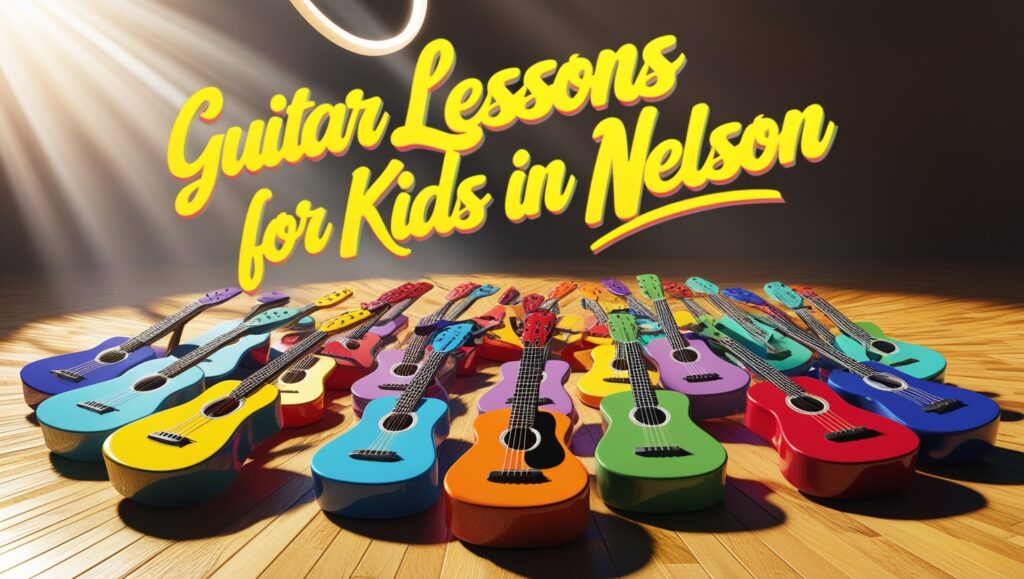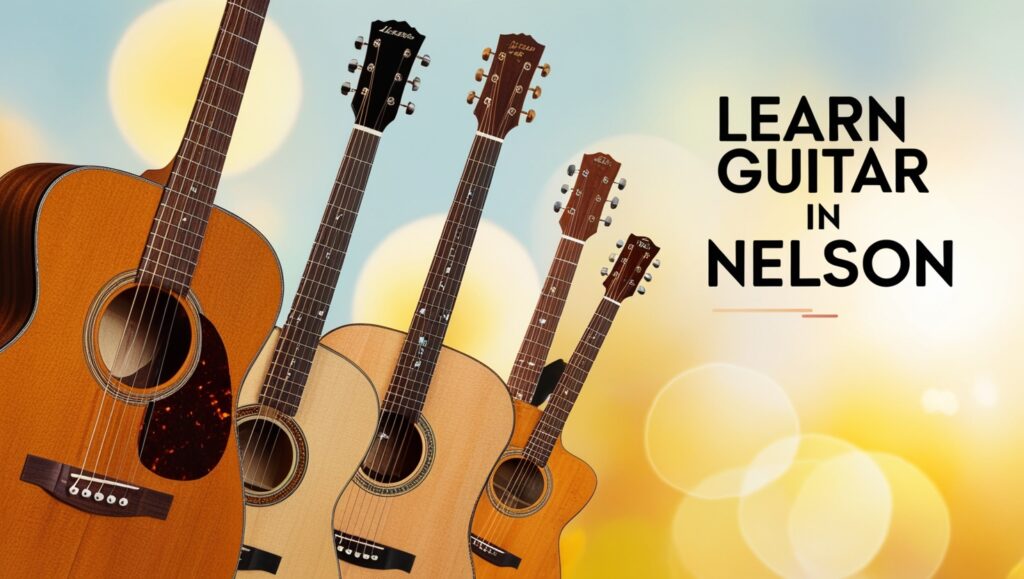
If you’ve ever considered learning to play the guitar, there’s no better time to start than now. Whether you’re a total beginner or someone who’s looking to refine your skills, guitar tuition in Nelson offers a wealth of opportunities to grow as a musician. With personalized lessons tailored to your pace and style, you can unlock the potential to play the songs you love, while gaining the benefits that come with learning this versatile instrument.
In this article, we’ll dive into the top 5 reasons why you should sign up for guitar tuition in Nelson today and why it’s an investment you won’t regret.
1. Personalised Learning to Suit Your Needs
One of the greatest advantages of guitar tuition in Nelson is that the lessons are personalized to meet your individual goals and learning style. Unlike generic online tutorials or group classes that move at a one-size-fits-all pace, private tuition allows you to focus on the specific areas you want to improve.
If you’re a beginner, your instructor can guide you through the basics, such as learning essential chords, strumming patterns, and how to tune your guitar. For intermediate and advanced players, lessons can focus on more complex techniques like fingerpicking, soloing, improvisation, and music theory. Whatever your current skill level, guitar tuition offers a tailored approach to help you progress faster and more efficiently.
Key Benefits of Personalized Guitar Lessons:
- Set your own pace and learning objectives
- Learn in a style that matches your music preferences
- Get instant feedback and corrections from an experienced teacher
- Develop a practice routine that suits your schedule
2. Stay Motivated with Expert Guidance
One of the common reasons people give up on learning guitar is because they feel stuck or unmotivated. Having a dedicated guitar instructor can keep you on track and ensure you’re constantly improving. With guitar tuition in Nelson, you’ll have the opportunity to work with a skilled musician who can offer support, encouragement, and practical advice.
Your teacher will help you overcome challenges, whether it’s mastering tricky chord transitions, improving your rhythm, or developing confidence when playing in front of others. As you achieve small milestones along the way, your motivation to keep practicing will naturally grow.
How Expert Guidance Helps You Progress:
- Gain clarity on challenging techniques
- Receive constructive feedback on areas of improvement
- Set and achieve realistic goals
- Stay motivated with regular lesson plans and guidance
3. Learn Your Favourite Songs with Guitar Tuition in Nelson
A major benefit of starting guitar tuition in Nelson is the chance to learn the songs you love. Many aspiring guitarists get discouraged when they have to spend too much time on scales or theory without ever touching the music they enjoy. With private guitar lessons, you can ask to learn your favorite tunes right from the start.
Whether you’re into rock, pop, blues, country, or folk, your instructor will teach you how to play the music that inspires you. Learning songs that resonate with you keeps the experience fun and engaging, making practice feel less like work and more like a creative outlet.
Why Learning Your Favourite Songs Matters:
- Keeps you excited and engaged in your practice routine
- Allows you to connect with the music on a deeper level
- Helps you develop a repertoire that you can perform for friends and family
4. Build Confidence and Overcome Self-Doubt
For many adults and even teenagers, the idea of starting guitar lessons can seem intimidating. Perhaps you feel you’re too old to learn, or maybe you’re worried that you won’t progress fast enough. The truth is, it’s never too late to start learning guitar, and guitar tuition in Nelson can help you overcome any self-doubt you may have.
Your instructor will work with you to build your confidence gradually. By breaking down the learning process into manageable steps, you’ll feel a sense of accomplishment with each small victory—whether it’s mastering a chord progression, nailing a rhythm, or playing a song all the way through.
How Guitar Tuition Builds Confidence:
- Learn at your own pace without the pressure of group settings
- Gain confidence as you achieve small, incremental goals
- Overcome fear of failure with positive reinforcement and expert guidance
- Develop the skills to perform in front of others
5. Join a Vibrant Local Music Community
Nelson is home to a thriving music scene, and by enrolling in guitar tuition, you’ll open the door to becoming a part of that community. Whether you’re interested in performing in local open mic nights, joining a band, or simply jamming with other musicians, learning guitar can introduce you to like-minded individuals who share your passion for music.
Your guitar teacher can provide insights into the Nelson music scene, helping you connect with others and gain the confidence to share your talent with the community. Beyond the personal joy of learning guitar, this social aspect can enrich your experience and keep you engaged for the long term.
The Benefits of Connecting with the Nelson Music Scene:
- Meet other musicians and make new friends
- Find opportunities to perform in local venues or community events
- Share your musical journey with supportive peers
Ready to Get Started? Book Your Guitar Tuition in Nelson Today!
There’s no time like the present to begin your musical journey. Whether you’re a complete beginner or someone looking to refine your skills, guitar tuition in Nelson provides the personalised guidance, motivation, and confidence you need to become the guitarist you’ve always wanted to be.
With expert instruction, you’ll have the opportunity to learn at your own pace, master your favorite songs, and overcome challenges with the support of an experienced teacher. Plus, you’ll have the chance to connect with a vibrant local music community.
Don’t wait any longer to start your guitar journey. Visit our website today to book your first lesson and see how guitar tuition in Nelson can help you achieve your musical goals!





